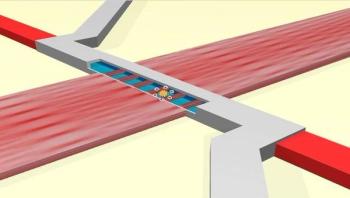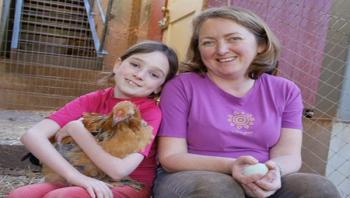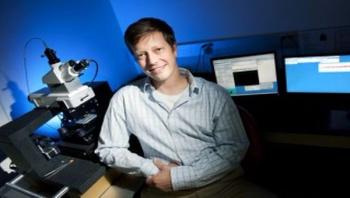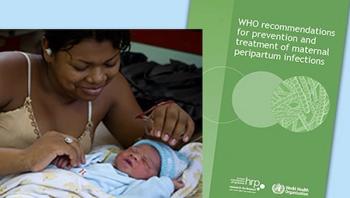
News







aureus (MRSA) that loiter on surfaces even after patient rooms have been cleaned and can cause new, sometimes-deadly infections. But a new study from Duke Medicine has found that using a combination of chemicals and UV light to clean patient rooms cut transmission of four major superbugs by a cumulative 30 percent among a specific group of patients -- those who stay overnight in a room where someone with a known positive culture or infection of a drug-resistant organism had previously been treated.

New research may revolutionize the slow, cumbersome and expensive process of detecting the antibodies that can help with the diagnosis of infectious and auto-immune diseases such as rheumatoid arthritis and HIV. An international team of researchers have designed and synthetized a nanometer-scale DNA "machine" whose customized modifications enable it to recognize a specific target antibody. Their new approach, which they described this month in Angewandte Chemie, promises to support the development of rapid, low-cost antibody detection at the point-of-care, eliminating the treatment initiation delays and increasing healthcare costs associated with current techniques.



New chip-based optical sensing technologies developed by researchers at UC Santa Cruz and Brigham Young University enable the rapid detection and identification of multiple biomarkers. In a paper published October 5 in Proceedings of the National Academy of Sciences, researchers describe a novel method to perform diagnostic assays for multiple strains of flu virus on a small, dedicated chip.






U.S. hospitals recorded nearly 58,000 work-related injuries and illnesses in 2013, amounting to 6.4 work-related injuries and illnesses for every 100 full-time employees -- almost twice as high as the overall rate for private industry. In June, the Occupational Safety and Health Administration (OSHA) announced it was targeting some of the most common causes of workplace injury and illness in the healthcare industry, and is expanding its use of enforcement resources in hospitals and nursing homes to focus on patient or resident handling; bloodborne pathogens; workplace violence; tuberculosis, and slips, trips and falls.







Johns Hopkins University and DuPont have signed license and collaboration agreements allowing DuPont to commercialize a garment with innovative features from Johns Hopkins to help protect people on the front lines of the Ebola crisis and future deadly infectious disease outbreaks. DuPont intends to have the first of these garments available in the marketplace during the first half of 2016.

Antibiotic resistance is a growing global public health threat causing an estimated 23,000 deaths in America alone each year. One historically overlooked avenue by which antibiotic resistance can spread is through contact or consumption of contaminated water. For example, recent news articles have raised fears about human sewage tainted water at some of the venues for the 2016 Rio de Janeiro Olympics and the potential spread of resistant super-bugs. Unfortunately, the Brazilian Olympics is just one example of the growing scale of this problem. The situation is “a global health challenge,” says Peter Vikesland, professor of civil and environmental engineering at Virginia Tech.

One weapon in the armament against surgical site infections (SSIs) is the American College of Surgeons' National Surgical Quality Improvement Program (NSQIP), an essential tool to helping hospitals reduce the rate of SSIs and other complications that arise during and after patient procedures, says Clifford Ko, MD, MS, MSHS, FACS, director of the Division of Research and Optimal Patient Care at the American College of Surgeons (ACS). Ko will deliver the keynote address, “Achieving Quality Improvement in Patient Care,” at the OR Manager conference to be held Oct. 7-9, 2015 in Nashville, Tenn.


Recently a survey purported to demonstrate a causal association between reusable sharps containers and hospital acquired Clostridum difficile (C. diff) infections. It was published in the July 30 edition of Becker’s Hospital Review.
